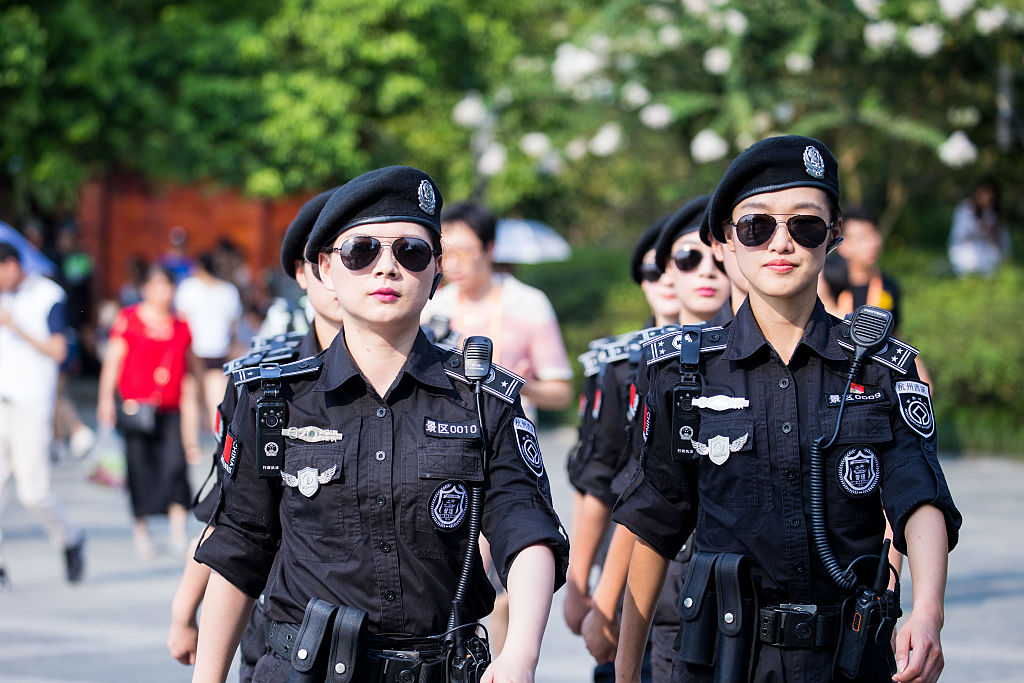
If the massive propaganda blitz enveloping China is to be believed, the chance to host a G20 summit is a mandate from the heavens, a seal of international approval that confirms China’s status as global economic savior. “Experts are confident,” proclaimed the state-run China Daily, “that the G20 Hangzhou summit will deliver a desirable cure for the still anemic global economy.” State media have described Hangzhou, the city in eastern China where leaders of the world’s 20 largest economies will convene on Sept. 4-5, as a “dream town” and no less than a “paradise on earth.”
That is superlative praise, and I wondered how the last city to have hosted the G20 was transformed by its brush with global greatness. So on Sept. 2 in Hangzhou, I asked 30 passersby—the kind of iPhone-swiping, Costa Coffee-swigging business types who might be interested in the fate of the global economy—what they thought of the 2015 G20 summit host. It turned out that only one person (plus two G20 volunteers) knew that the last G20 confab had taken place in Turkey. No one knew that the city in question was Antalya, the resort town on the Mediterranean.
Read More: Tsang Yok-Sing Wants to Heal the Rift Between Hong Kong and China
The results of my survey—albeit an unscientific sampling—raises a question: Why does the Chinese government care so much about hosting these kinds of events when they doesn’t necessarily translate to global glory? In the official Chinese narrative, 2008 (Beijing Olympics), 2010 (Shanghai Expo), 2014 (Beijing APEC) and 2016 (Hangzhou G20) mark the metronomic emergence of a nation that is once again claiming its rightful place as Zhongguo—the “middle country” or, to be more poetic, “the center of the world,” as China is known in Chinese. “In my view, Hangzhou is hosting the G20 because the rest of the world’s economy is broken,” says Wu Rulin, a software engineer in Hangzhou. “It makes sense to have the G20 in the place with the best economy.”
It’s true that China now claims the world’s second-largest economy and served as an oasis of stability in 2008 when, as the inaugural G20 meeting was held in Washington, much of the rest of the world was caught in financial crisis. Today, Hangzhou is home to one of the world’s largest tech companies, China’s Alibaba, which boasted the largest IPO in history in 2014, as well as Geely, China’s first private carmaker and Volvo parent, and Wahaha, China’s largest beverage maker. Economic growth may be slowing in China, idling factories and miring state-owned firms in even more debt. But the European Union is pulling apart amid a refugee crisis and the U.S. is trapped in a toxic political cycle. You can’t blame Chinese President Xi Jinping for saying that, with the G20 Hangzhou summit, “China will work with all other parties to pull in one direction in the spirit of win-win partnership.”
Read More: China’s Morality Censors Take Aim at the Country’s Film Industry
China’s undeniable power, its global gravitas, makes it all the more puzzling that its government feels the need to constantly prove its greatness to the world. On the eve of the G20 summit, do state media really need to quote “foreign experts” from Kazakhstan and Chad to show that China will save the day with its eager consumers and innovative entrepreneurs? Did I know, one of an estimated 760,000 G20 volunteers asked me in excellent English, that Hangzhou had already hosted the World Leisure Expo and the China International Cartoon and Animation Festival? (I did not.) “This shows,” she told me, “that Hangzhou is a very unique city.”
Hangzhou is, indeed, pleasant. Back in the 13th century, Marco Polo called the onetime imperial capital the world’s most magnificent metropolis. Hangzhou has been remade since then, particularly in the months leading up to the G20. All manholes have been locked down, lest security surprises spring from underground. Hangzhou officials have exhorted locals to drive mosquitoes, rodents, flies and cockroaches—the “four pests”—out of town. (Those words bring bad memories—beginning in the 1950s, a nationwide campaign against the “four pests,” led to the ecologically devastating extermination of sparrows, and the birds have since been replaced by cockroaches in a new accounting of pestilent creatures.)
Read More: Lost In Transition: The Shifting Landscape of Western China
People, it seems, are also a bit of a nuisance for a city that wants to clear its streets— and air—for the likes of Barack Obama and Vladimir Putin, Angela Merkel and Narendra Modi. Residents have been given a weeklong holiday around the G20 period, and Hangzhou train stations heaved with humanity eager to leave, if only they could stand the hour-long security lines. With factories shuttered, the city’s normally smoggy skies have turned what’s been dubbed “G20 blue.”
But for international visitors who want to visit the city’s most vaunted tourist attraction, the West Lake, with its pagodas and gardens, G20 is an inopportune time. Only people with special passes can now strolls its perimeter. Some of the tourists supposedly wandering around West Lake, another G20 volunteer explained, aren’t holiday-makers at all but security forces dressed in civilian clothes to “make normal people feel more comfortable.” Even a dream town needs a bit of make believe to turn itself into a paradise on earth.
More Must-Reads From TIME
- The 100 Most Influential People of 2024
- Coco Gauff Is Playing for Herself Now
- Scenes From Pro-Palestinian Encampments Across U.S. Universities
- 6 Compliments That Land Every Time
- If You're Dating Right Now , You're Brave: Column
- The AI That Could Heal a Divided Internet
- Fallout Is a Brilliant Model for the Future of Video Game Adaptations
- Want Weekly Recs on What to Watch, Read, and More? Sign Up for Worth Your Time
Contact us at letters@time.com